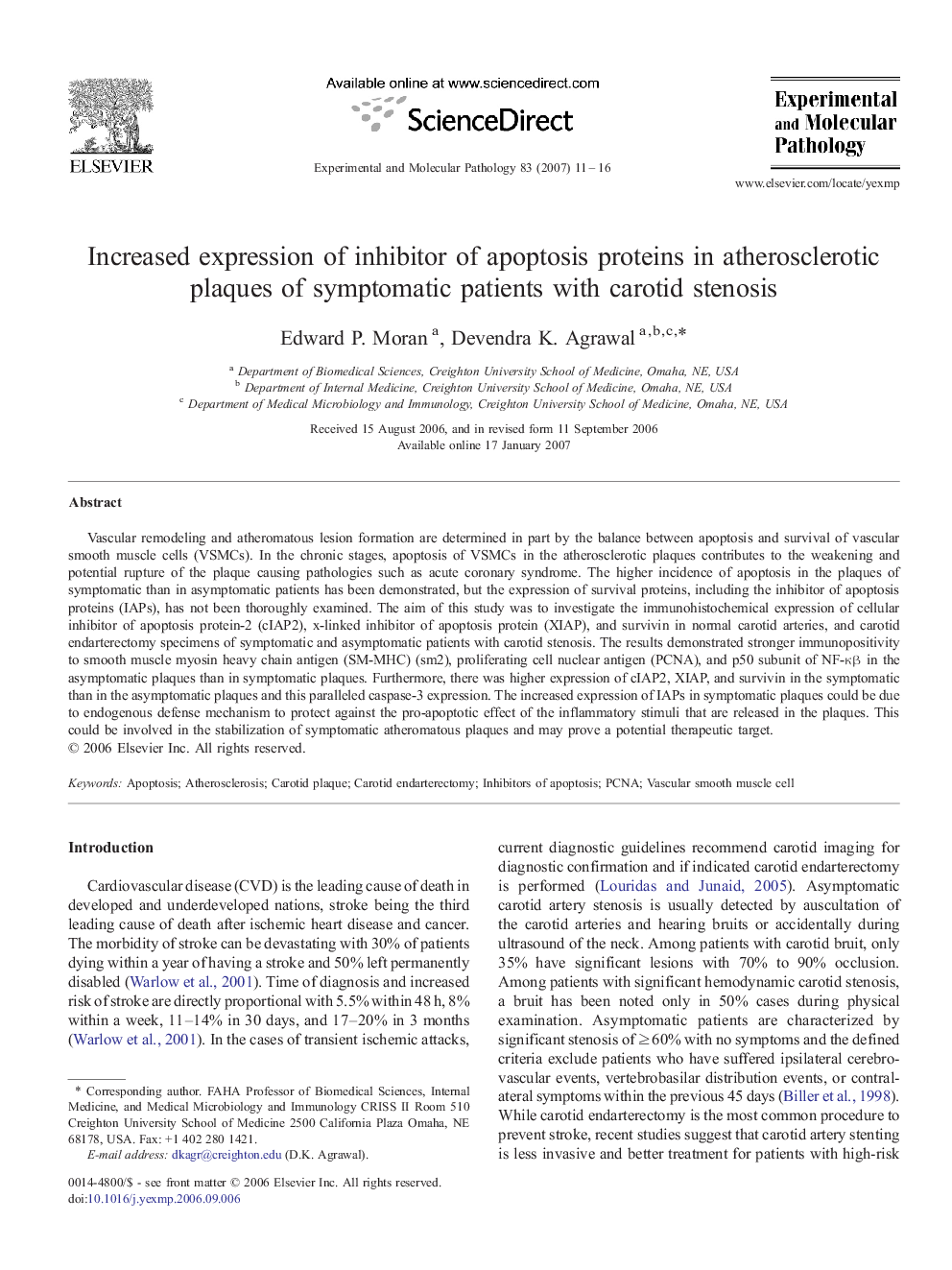| Article ID | Journal | Published Year | Pages | File Type |
|---|---|---|---|---|
| 2775744 | Experimental and Molecular Pathology | 2007 | 6 Pages |
Abstract
Vascular remodeling and atheromatous lesion formation are determined in part by the balance between apoptosis and survival of vascular smooth muscle cells (VSMCs). In the chronic stages, apoptosis of VSMCs in the atherosclerotic plaques contributes to the weakening and potential rupture of the plaque causing pathologies such as acute coronary syndrome. The higher incidence of apoptosis in the plaques of symptomatic than in asymptomatic patients has been demonstrated, but the expression of survival proteins, including the inhibitor of apoptosis proteins (IAPs), has not been thoroughly examined. The aim of this study was to investigate the immunohistochemical expression of cellular inhibitor of apoptosis protein-2 (cIAP2), x-linked inhibitor of apoptosis protein (XIAP), and survivin in normal carotid arteries, and carotid endarterectomy specimens of symptomatic and asymptomatic patients with carotid stenosis. The results demonstrated stronger immunopositivity to smooth muscle myosin heavy chain antigen (SM-MHC) (sm2), proliferating cell nuclear antigen (PCNA), and p50 subunit of NF-κβ in the asymptomatic plaques than in symptomatic plaques. Furthermore, there was higher expression of cIAP2, XIAP, and survivin in the symptomatic than in the asymptomatic plaques and this paralleled caspase-3 expression. The increased expression of IAPs in symptomatic plaques could be due to endogenous defense mechanism to protect against the pro-apoptotic effect of the inflammatory stimuli that are released in the plaques. This could be involved in the stabilization of symptomatic atheromatous plaques and may prove a potential therapeutic target.
Keywords
Related Topics
Life Sciences
Biochemistry, Genetics and Molecular Biology
Clinical Biochemistry
Authors
Edward P. Moran, Devendra K. Agrawal,
